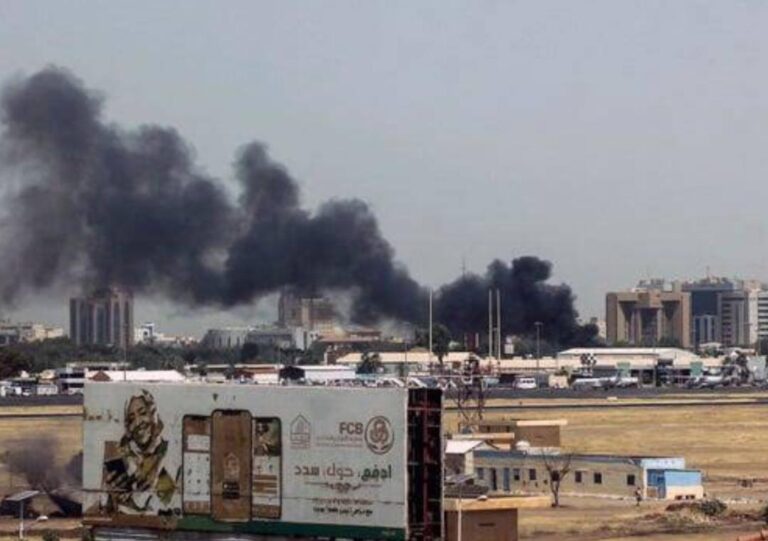
A ceasefire in Sudan that came into force on Thursday has already been broken.
Airstrikes and heavy shelling were reported near the presidential palace in the capital Khartoum in the morning, according to the Al-Jazeera news network.
Artillery fire was also heard in the neighbouring town of Omdurman, according to eyewitness reports on Twitter.
The week-long ceasefire agreed to by both factions in the Sudanese conflict was supposed to be in effect from Thursday until May 11.
However, chances that it would hold had been considered slim.
Since fighting began in Sudan between military factions loyal to two top generals nearly three weeks ago, ceasefires of up to 72 hours have been repeatedly negotiated only to be repeatedly broken.
Sudan’s de facto president Abdel Fattah al-Burhan is leading the official military in a power struggle against his former deputy, Mohammed Hamdan Daglo, who heads the paramilitary Rapid Support Forces (RSF).
The two generals had once seized control of Sudan together in joint military coups.
However, repeated disagreements about how to share power led to a deepening rift between the two camps, which culminated in open fighting on April 15 and plunged the country with its around 46 million inhabitants into a grave crisis.
The RSF on Thursday accused the military of breaking the terms of the latest ceasefire.
It accused the army of bombing RSF positions as well as residential areas in a statement.
The army denied these claims and said RSF fighters had launched an attack on soldiers early on Thursday morning. Neither claims could be independently verified.
The UN Central Emergency Response Fund said on Thursday that it expected 860,000 people to flee Sudan.
The cost to help Sudan’s refugees was calculated at around $445 million.
The international organisation Human Rights Watch (HRW) denounced the use of heavy weapons in densely populated residential areas in Sudan in a report released on Thursday.
“Sudan’s warring armies are showing reckless disregard for civilian lives by using inaccurate weapons in populated urban areas,” Mohamed Osman, Sudan expert at the rights watchdog, said in the HRW report.
The organisation called on the UN Security Council to do more to ensure the safety of the population and to hold those responsible for the conflict accountable.
According to HRW, witnesses in Khartoum reported that anti-aircraft guns were set up and fired in the immediate vicinity of residential buildings.
RSF paramilitary soldiers were also reported to have entered and slept in surrounding houses.
They also sought shelter behind houses from army bombardments, making the buildings targets.
Many civilians in Khartoum, but also in other parts of the country, have been forced to stay at home since the outbreak of the fighting.
In the sweltering heat, they have only a small supply of water, electricity is scarce and there is no access to medical care, the report said.
Temperatures in Khartoum are currently rising to over 40 degrees Celsius during the day.
(dpa/NAN)


